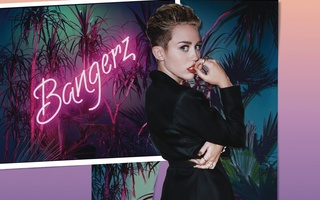Hair
April 26-27, 7:30 p.m.,
April 27-28, 2:30 p.m., 7:30 p.m.
Loeb Ex
Directed by
Katherine L. Price ’14
Produced by Simon A. De Carvalho ’14
and David C. Manella ’14
Sex, drugs, and protest music are coming to Harvard. In the upcoming production of the rock musical “Hair”—which explores the cultural, sexual, and political revolutions of the sixties—an inventive cast and crew updates the show’s original political message for a modern audience. It centers on a group of hippies living in New York during the height of the Vietnam War who are resisting the draft in the midst of personal, societal, and familial pressures.
The importance of this show to our current political climate is palpable. “We chose to do this show last semester, the day the Occupy tents went up in the yard,” says producer David C. Manella ’14. Manella says that the show will not only deal with social movements from the 1960s, but also with issues that are relevant to a modern day audience. For example, cast members will hold picket signs about Proposition 8 and the Trayvon Martin case in the protest scenes.
The production will also draw heavily on the work of Diane Paulus ’88, the current Artistic Director of the American Repertory Theater who, before her tenure at the A.R.T., directed the Tony Award Winning revival of “Hair” in 2009. She met with the group to discuss her approach to the play. “She talked to us a lot about eye contact,” says actor Mark J. Mauriello ’15. For her, eye contact is a crucial technique that connects the action onstage to the audience. “You should show your appreciation to other people in the world, and be open to receiving things from other people; and basically take part in a bigger collective experience,” he says.
Director Katherine L. Price ’14 emphasizes the importance of the space of the Loeb Ex itself in highlighting both the political message of the show and this productions emphasis on audience involvement. This is because the intimate nature of the theater allows the cast members to interact with the audience without the sort of restrictions usually found in a more traditionally designed space, such as a clear distinction between the stage and the seats. “I really wanted to focus on audience interaction.... A lot of the numbers are really focused on being in the audience, which is really cool and not doable in any other space on campus,” said Price.
The interactive nature of the production is a technical choice that will compound the musical’s historical and modern message, but these decisions might also affect the audience in surprising ways. “If you come to the show, we will sit on you,” says Mauriello.
—Zoe K. Hitzig
Read more in Arts
‘Blonde’ Has All the FunRecommended Articles
-
 Brilliant Projectors Animate ‘George’
Brilliant Projectors Animate ‘George’ -
"punkplay" Looks at Teenage AngstFebruary 22-24, February 28-March 2
-
"punkplay" Rocks out in Adolescent WoeSensitive and insightful, "punkplay" details a misfit's quest for individualism.
-
Main Street Comes to Mainstage"Wonderful Town" opens tonight on the Loeb Mainstage. The Leonard Bernstein show is a Golden Age musical like "Bye Bye Birdie" or "Oklahoma!" A 17-piece orchestra and colorful set bring to life the production's tale of a move to the Big Apple.
-
In the 'Antigonick' of TimeIn Anne Carson’s translation of “Antigone,” she attempts to express the importance of what is left unsaid. By choosing to take out much of the original text, Carson zeros in on the most pressing themes of the original Greek classic, at the same time creating space for the audience to fill in some of the gaps. In collaboration with the Harvard-Radcliffe Dramatic Club, visiting director Ianthe Demos will put up a production of “Antigonick,” opening Oct. 25 on the Loeb Mainstage.
-
 Like a Wrecking Ball: Miley Cyrus at Harvard
Like a Wrecking Ball: Miley Cyrus at Harvard













